A top-secret laboratory is developing Britain’s first quantum clock to help the British military boost intelligence
A top-secret laboratory is developing a super-accurate ‘quantum clock’ that could revolutionize British intelligence.
Due to be rolled out by 2029, this super-accurate timekeeping device will enable more precise navigation and surveillance on Royal Navy ships and RAF aircraft.
It will also “increase the accuracy of advanced weapons” such as guided missiles and give British computer experts an edge over online adversaries such as cybercriminals.
The clock’s precision will be so refined that over billions of years it will lose less than one second, allowing scientists to measure time on an unprecedented scale.
It is the first device of its kind to be built in Britain and will be deployed in military operations over the next five years, according to the Defense Science and Technology Laboratory (DSTL).
“This first trial of an advanced atomic clock represents a significant achievement in Britain’s quantum technology capabilities,” said DSTL chief executive Paul Hollinshead.
“The data collected will not only shape future defense efforts, but also signal to industry and academia that we are serious about exploring quantum technologies for a secure and resilient operational advantage.”
Quantum clocks use quantum mechanics – the physics of matter and energy on the atomic and subatomic scales – to keep time with unprecedented accuracy by measuring energy fluctuations within atoms.
The quantum clock, developed at the top-secret Defense Science and Technology Laboratory (Dstl), will improve the UK’s intelligence and surveillance services by reducing reliance on GPS technology, which can be disrupted and jammed by adversaries.
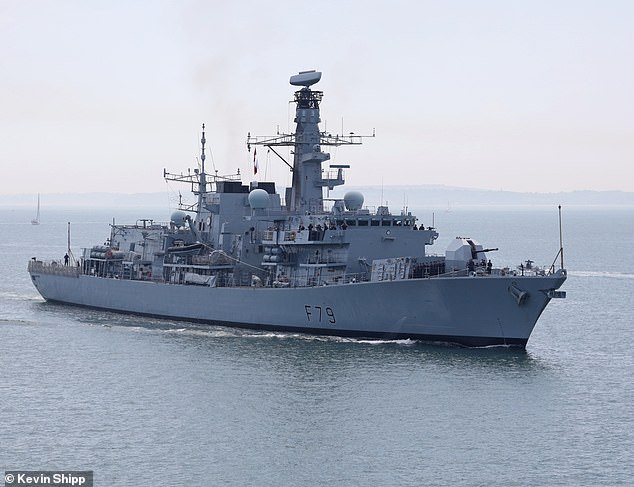
The quantum clock, due to be rolled out by 2029, will enable more precise navigation and surveillance on Royal Navy ships and RAF aircraft. Pictured: Royal Navy Duke class Type 23 anti-submarine frigate HMS Portland
Quantum clocks are even more accurate than ‘atomic clocks’, of which there are already approximately 400 in operation worldwide.
Britain already has an atomic clock at the National Physical Laboratory in London, but this quantum clock will be the country’s first.
Nick France, CTO of Sectigo, told MailOnline: ‘A quantum clock is a kind of atomic clock – essentially a super-accurate timekeeping device.
‘Atomic clocks work by measuring the resonant frequency of atoms, while quantum clocks measure very small energy changes (‘quantum fluctuations’) in these atoms, leading to greater accuracy, even compared to super-accurate atomic clocks.
‘Atomic clocks are currently incredibly accurate anyway, but a quantum clock has levels of accuracy where only one second is lost over billions of years of operation.’
The British quantum clock will be “the first device of its kind to be built in Britain,” the British government said in a statement, but it won’t be a world first.
In 2010, the University of Colorado Boulder developed a quantum clock together with the US National Institute of Standards and Technology.
However, the main barriers to the deployment of quantum clocks are their size: current models are delivered in a van or in a car trailer and have a volume of approximately 1,500 liters.
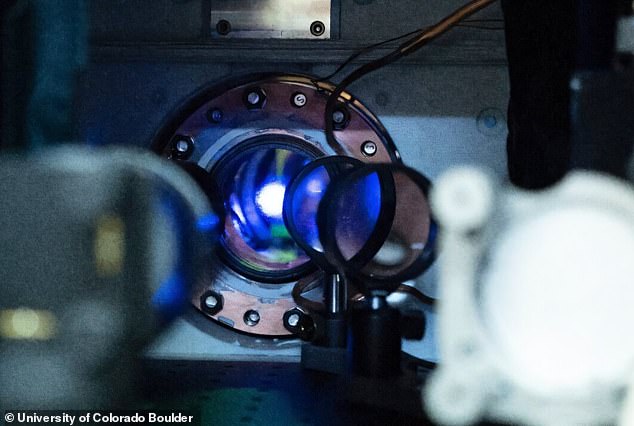
Atomic clocks use certain resonant frequencies of atoms to keep time with extreme accuracy. Pictured: atomic clock at the University of Colorado Boulder in the US
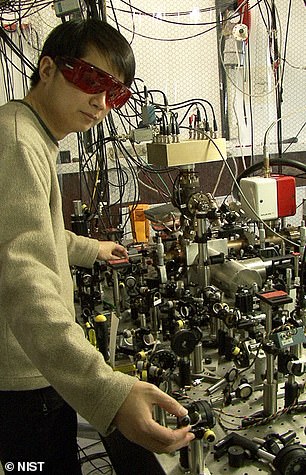
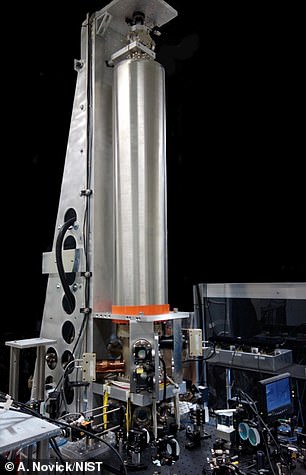
Quantum clocks (left) are considered a type of atomic clock (right) – although the former is more accurate than the latter
Like most quantum devices, quantum is also sensitive to environmental factors such as heat and air molecules, limiting their transport between different places.
“Quantum clocks are not small like watches or alarm clocks,” France added.
“These are devices that in current deployments can be large, even room-sized devices.
“However, technological improvements will reduce the size of these devices, making them more portable.”
Beyond just ultra-precise timekeeping, quantum clocks could transform global navigation systems by supporting satellite communications and aircraft navigation.
According to DSTL, their quantum clock will enable more precise and independent navigation systems, reducing dependence on GPS satellites, which are vulnerable to interference or destruction in conflict scenarios.
It will improve communications systems such as encrypted military networks, which rely on highly synchronized timekeeping, and increase the accuracy of advanced weapons systems such as guided missiles, which rely on precise timing to calculate trajectories and coordinate attacks.
In addition, the UK Armed Forces will gain an advantage over adversaries in ‘timing-critical operations’, such as cyber warfare, where milliseconds can make a difference.
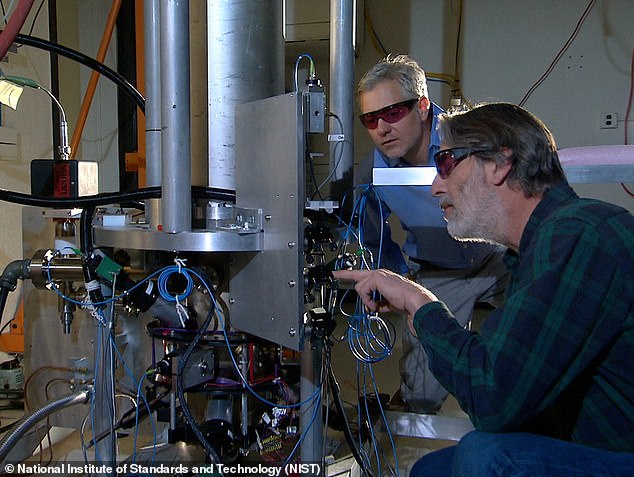
Coordinated Universal Time (UTC) is defined by advanced, ultra-precise ‘atomic clocks’ around the world, ticking accurately and continuously. Experts pictured here with the NIST-F2 atomic clock in the US
Cyber warfare refers to the actions of a nation state or international organization to attack and attempt to damage another country’s computers or information networks.
France told MailOnline: ‘Super-accurate timekeeping is important for governments and militaries to enable precise navigation (using GPS or similar technologies) of aircraft and ships, but also to guide weapon systems such as missiles.
“Equally important for both the military and civilians is secure communications.
“Much of the secure communications for governments and the military relies on accurate time sources to function.
“But these accurate clocks are also useful for more civilian applications and general Internet security, and even for securing your personal data as it travels over the Internet.”
Companies and governments around the world are eager to capitalize on the enormous potential benefits that the ghostly effects of quantum technology can bring.
Google last month unveiled a new quantum computer chip that it said could do in minutes what leading supercomputers would take 10 septillion years to complete.
Ultimately, such a chip could power a “commercial” quantum computer that could be purchased by the general public and used in labs, offices, and even homes.
Harnessing the uncanny effects of quantum physics, these ultra-powerful machines can do everything from accelerating AI, solving climate change and discovering life-saving medicines.
